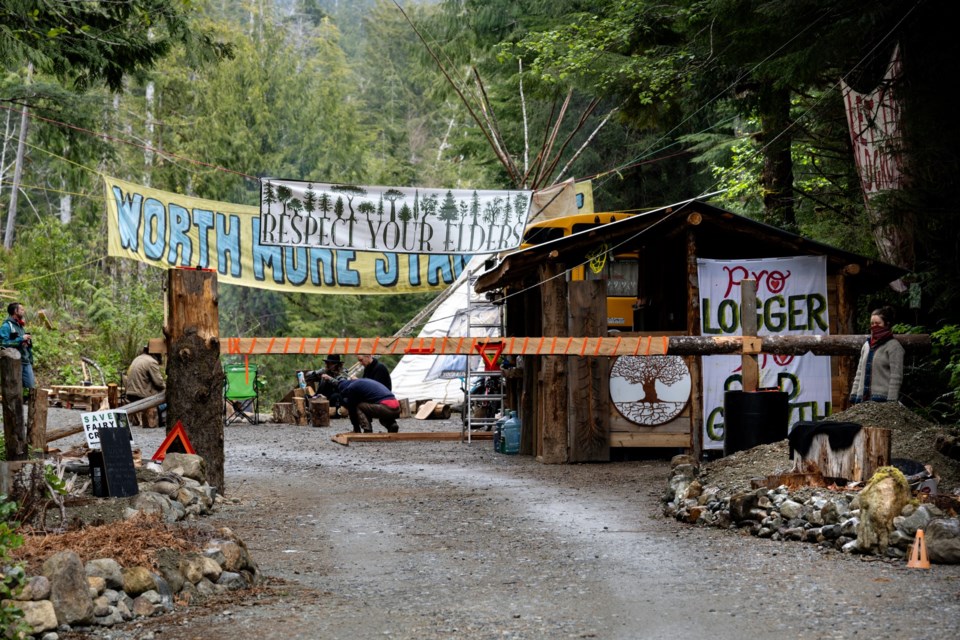I live in logging country. My dad has been a faller, loader operator, and logging truck driver. Forestry dollars put food on my childhood table and helped pay for university.
I support the forestry industry and I believe it can be conducted sustainably – but I admit to some shock at seeing the massive old-growth trees being trucked out from the Fairy Creek area of Vancouver Island, and some revulsion.
Revulsion because the communities that rely on forestry in B.C. have had some recent reminder of just how quickly the companies that reap the greatest profits will pull up stakes and leave the locals with a decimated landscape when more money can be made more quickly elsewhere. It’s been little more than a year since those companies walked away from dozens of mills in the B.C. North and Interior with a shrug and as little severance as possible.
And I admit to some fear because I remember the original War in the Woods and the toll it took on this province.
It erupted in earnest in Clayoquot Sound, on the northwestern edge of Vancouver Island, in 1992 after years of ongoing tension. Thousands of people converged at a blockade on a remote logging road in what was, at that time, the largest act of civil disobedience in Canadian history.
After the provincial government accepted the recommendations of a scientific panel and drastically reduced the allowable cut in the region, which was eventually declared a UNESCO biosphere reserve.
The next flashpoint in the war was the Great Bear Rainforest, the vast temperate rainforest along the north and central cost of B.C.
The War in the Woods made headlines around the world. There were thousands of arrests over the years and an international boycott campaign that led companies including Ikea and Home Depot to shun B.C. wood products.
But after a decade of frontline confrontations just like the ones playing out over the past few months on Vancouver Island, the province was no closer to a solution. Confrontation, injunction, arrests, releases, confrontations, injunction, arrests…the cycle continued. Year after year.
B.C.’s international reputation took a hit. The courts were congested. The RCMP were put in the middle time and again while the provincial government failed to address core issues. Sound familiar?
So how long do we do this again? Do we wait until the jails are full? Until someone gets hurt? Until B.C. is again an international pariah, our wood products sidelined by a boycott just as prices peak?
The original War in the Woods was not resolved by confrontations on logging roads, or by courts. One side didn’t win while the other lost.
In 2000, the industry formed a group to look for a resolution. Separately, the protest groups did the same. They ultimately came together, with First Nations governments, and joined forces to negotiate a joint solution and in 2001 signed a framework agreement. It was five more years before the province and involved First Nations governments announced the Great Bear Rainforest Agreements covering 6.4 million hectares of temperate rainforest along B.C.’s north and central coast. Ultimately, industrial logging would be banned in 85 per cent of the area covered by the agreement.
I support the forestry industry. I believe harvesting timber in B.C. can be done sustainably and responsibly. Is it? Well, not always.
The fact is, much greater profit can be made much more quickly by cutting down giant old-growth trees, than by sustainably harvesting in ecosystems where trees naturally have a much shorter life span. But they’re smaller trees, more remotely located, and the profit margins, while good, are not as great as they are in cutting down the giants of the temperate rainforest.
The provincial government has the recommendations of an independent panel. The protesters have the world’s attention. The industry has much to lose.
Let’s get on with the real work of a collaborative resolution that leaves room for investment in a stable, sustainable forest industry in the regions where that’s possible.
Dene Moore is an award-winning journalist and writer. A news editor and reporter for The Canadian Press news agency for 16 years, Moore is now a freelance journalist living in the South Cariboo. Moore’s two decades in daily journalism took her as far afield as Kandahar as a war correspondent and the Innu communities of Labrador. She has worked in newsrooms in Vancouver, Montreal, Regina, Saskatoon, St. John’s and Edmonton. She has been published in the Globe and Mail, Maclean’s magazine, the New York Times and the Toronto Star, among others. She is a Habs fan and believes this is the year.
SWIM ON:
- Dene Moore last wrote that the argument that BC is an ‘outlier’ for protecting rural representation is simply not true – and warrants a response.
- John Horgan is watching more and more civil disobedience in his own riding – but there’s little sign it actually concerns him, says Rob Shaw.
- Last year, Carol Anne Hilton observed that forestry would be one of the industries that will be most affected by UNDRIP -- but the good news is much of it was already moving in the right direction.



